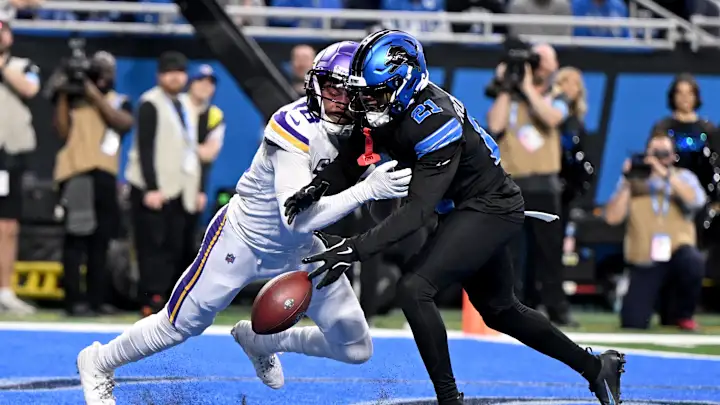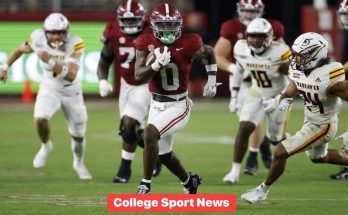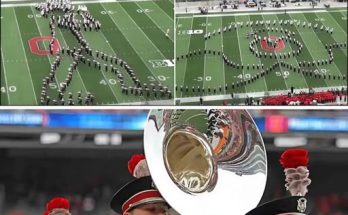Defensive Stats Lions Must Improve in 2025: A Critical Analysis
The Detroit Lions are a franchise that has experienced a rollercoaster of ups and downs in recent years. As the team enters the 2025 season, one area that is imperative to their success is improving their defense. While the Lions have made strides on the offensive side of the ball, their defense has been a liability at times. For the Lions to become legitimate contenders in the NFC, it’s clear that improvements on defense must be prioritized. This article will break down the key defensive statistics that the Lions need to improve in 2025 to be successful, and what changes could help the team take the next step.
1. Points Allowed per Game (PAPG)
The most telling statistic when evaluating a team’s defense is points allowed per game (PAPG). In the 2024 season, the Lions struggled with keeping opposing offenses from putting up points on the scoreboard. In 2024, Detroit finished with one of the higher PAPG rates in the league, allowing 25.5 points per game, ranking near the bottom of the NFL.
In 2025, for the Lions to be competitive in a high-powered NFC, reducing the number of points they allow is paramount. The Lions need to focus on several key areas to achieve this:
- Red Zone Defense: The Lions allowed touchdowns in 61% of red zone trips in 2024, a stat that must improve in 2025. Effective red zone defense can reduce the number of points opposing teams score, even if they manage to move the ball downfield.
- Third-Down Defense: In 2024, the Lions were ranked 26th in the league in third-down defense, allowing opponents to convert 42% of their third downs. This is another key area to address. Defending third downs and getting off the field is crucial for limiting opposing offenses’ time on the field and ultimately lowering the total points allowed per game.
Improving these two areas will directly impact the Lions’ ability to reduce points allowed in 2025, helping them stay competitive in close games.
2. Total Yards Allowed
Another significant statistic for the Lions in 2025 is the total yards allowed. While they’ve shown flashes of improvement at times, they finished the 2024 season ranked 20th in total yards allowed per game, surrendering 366.9 yards on average. This total reflects a defense that struggles to consistently stop the run and the pass.
To improve this in 2025, the Lions need to focus on two key aspects of their defense:
Run Defense
The Lions’ run defense was a major weakness in 2024, allowing 135.4 yards per game, ranking 24th in the league. Detroit’s struggles against the run were apparent in several games, where opposing teams were able to control the tempo of the game by establishing a ground attack.
To address this issue in 2025, the Lions must focus on:
- Improved Defensive Line Play: The defensive line must become more disruptive at the point of attack. In 2024, Detroit’s defensive line was often outmuscled by stronger offensive lines, giving up big chunks of yardage on the ground. Adding more talent, including potentially an impact defensive tackle or edge rusher in the offseason, could make a big difference.
- Linebacker Play: The linebacker corps needs to be more aggressive and decisive. Improving their ability to read the run and filling gaps quickly will help prevent opposing teams from gaining consistent yardage on the ground. A strong tackler in the middle, who can also cover ground sideline-to-sideline, would be invaluable to the Lions’ defense.
Pass Defense
While the Lions’ run defense was their most glaring weakness in 2024, their pass defense also needs improvement. Detroit ranked 18th in passing yards allowed, giving up 231.5 yards per game. The Lions’ secondary struggled at times, particularly in coverage, allowing too many big plays and struggling with defensive consistency.
To improve pass defense in 2025, the Lions should focus on:
- Secondary Playmaking: Detroit’s secondary needs to become more opportunistic. Cornerbacks and safeties must create turnovers by getting their hands on the football. In 2024, the Lions had a relatively low interception rate, ranking 25th in the league with just 9 interceptions. Generating turnovers through interceptions, forced fumbles, and deflections will be critical to the Lions’ success.
- Cornerback Depth: The Lions need to invest in a more reliable No. 1 cornerback. While players like Jeff Okudah have shown promise, Detroit will need a true lockdown corner capable of limiting top-tier wide receivers. The addition of another dynamic playmaker on the outside could greatly improve Detroit’s pass defense.
3. Sacks and Quarterback Pressure
One of the major factors that impacted the Lions’ ability to stop both the run and pass in 2024 was a lack of pressure on opposing quarterbacks. The Lions finished with 34 sacks in 2024, which ranked 20th in the league. Getting to the quarterback is critical for disrupting offensive rhythm, forcing turnovers, and preventing big plays.
To improve their sack total and quarterback pressure in 2025, the Lions must focus on:
- Improving Pass Rush Depth: Detroit needs more consistent pressure from its edge rushers. While Aidan Hutchinson showed significant promise in 2024, Detroit must develop a stronger supporting cast on the defensive line. Adding another pass rusher to the rotation, especially one who can complement Hutchinson’s strengths, will be a key factor in improving sack numbers.
- Interior Pressure: Sacks aren’t just about edge rushers. Interior pressure, particularly from defensive tackles, can collapse the pocket and force quarterbacks into uncomfortable situations. The Lions need to bolster their interior defensive line to ensure that quarterbacks feel constant pressure from all angles.
- Blitz Schemes: In addition to improving individual pass rushers, the Lions could use more creative blitz schemes. Defensive coordinator Aaron Glenn could look to incorporate more blitzes and stunts to confuse opposing offensive lines, creating more opportunities for sacks and forcing hurried throws.
Improving the Lions’ ability to generate pressure on the quarterback will lead to more sacks, more turnovers, and ultimately, more success on defense in 2025.
4. Turnovers Forced
The Lions’ ability to create turnovers was another area that hindered their defensive performance in 2024. They ranked 20th in the NFL in turnovers forced, with just 19 takeaways over the course of the season. Creating turnovers is critical in the NFL, as it shifts the momentum of the game and often results in easier points for the offense.
To improve this statistic in 2025, the Lions need to:
- Secondary Improvement: As mentioned earlier, the Lions need their defensive backs to be more aggressive in generating interceptions. Cornerbacks like Okudah, and safeties like Tracy Walker, need to make more plays on the ball, especially in passing situations. Adding a ball-hawking safety or corner would give Detroit the edge they need.
- Stripping the Ball: Defenders need to be more aggressive in stripping the ball, both in the run game and during tackles in the passing game. Creating fumbles and recovering them could change the trajectory of games, providing more short-field opportunities for the offense.
- Turnover Differential: The Lions need to focus on winning the turnover battle. This can be accomplished not just by creating turnovers, but also by reducing turnovers on the offensive side of the ball. Improving the turnover differential is key to being a competitive defense in 2025.
5. Defensive Efficiency (DVOA)
Defensive DVOA (Defense-adjusted Value Over Average) is a more comprehensive metric that measures a team’s overall defensive efficiency, factoring in opponents’ strength. The Lions finished 2024 with a DVOA that was below average, ranking 25th in the NFL. This statistic encapsulates the overall efficiency of the defense—how well they are able to limit yardage, create turnovers, and get off the field in critical situations.
Improving the Lions’ defensive DVOA in 2025 will require a complete team effort. Enhancing the areas discussed above—run defense, pass defense, pass rush, turnovers, and third-down defense—will all contribute to a higher DVOA. A focus on making the defense more efficient at every level will pay significant dividends in improving overall defensive performance.



